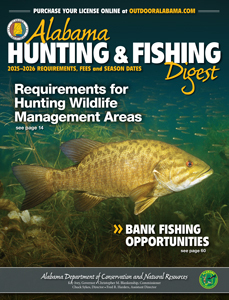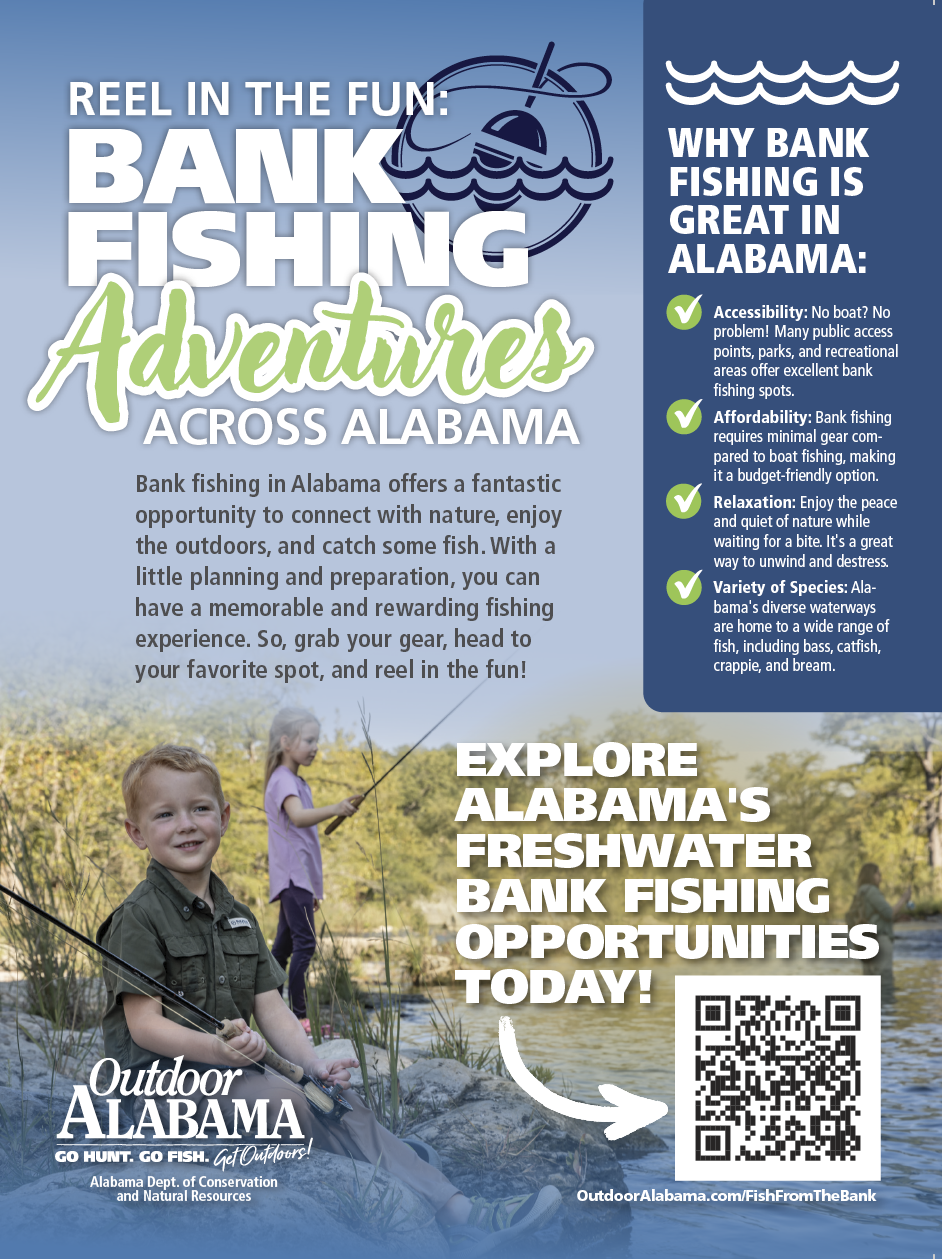Fishing Regulations

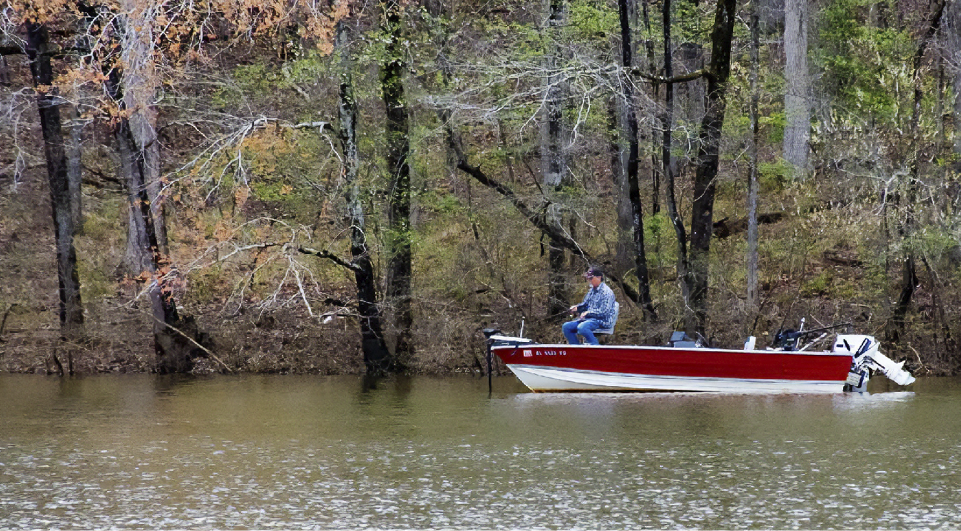
Important Notes:
- All public streams, lakes and ponds are open to fishing throughout the year except some state-owned and managed Public Fishing Lakes (PFLs).
- It shall be unlawful for any person to take or have in possession more than the daily limit for any fish as established herein. This shall not apply to fish held live for release by the sponsor or its designated agent after a bonafide fishing tournament provided they are released unharmed to the public waters from which they were taken as soon as reasonably possible on the same day they were taken. This does not obligate the sponsor or its designated agent to release dead or dying fish.
- Except as otherwise noted, it shall be unlawful to possess any fish less than or greater than size restrictions as established herein. Size restrictions on all fish are determined by measuring total length from the front of the mouth to the tip of the tail with both mouth and tail closed. Except as otherwise provided for State and Federally owned and/or managed fishing lakes and ponds, the daily creel, possession limits and size restrictions for fish in all public waters of this State are in Fishing Daily Creel, Possession & Size Limits.
- It is a violation of Alabama law for any person to transport more than one day’s creel limit of any species of fish beyond the boundaries of this state.
- It is illegal to fish in public waters on or from posted private land without the owner’s permission. It is illegal to fish in private waters without permission from the owners.
- It is unlawful to fillet a fish or remove heads while fishing or to possess fillets of fish while on public waters, except when fish are being prepared for immediate cooking and consumption; provided, however, that the fish may be drawn or gutted with heads left attached.
- It is illegal to transport any live baitfish caught from streams, rivers, public lakes or reservoirs in Alabama, away from the waters where caught or to import live baitfish from streams, rivers, public lakes or reservoirs from any area outside the State of Alabama. Baitfish are defined as any species of fish or crayfish that are legal to use as bait for recreational or commercial fishing.
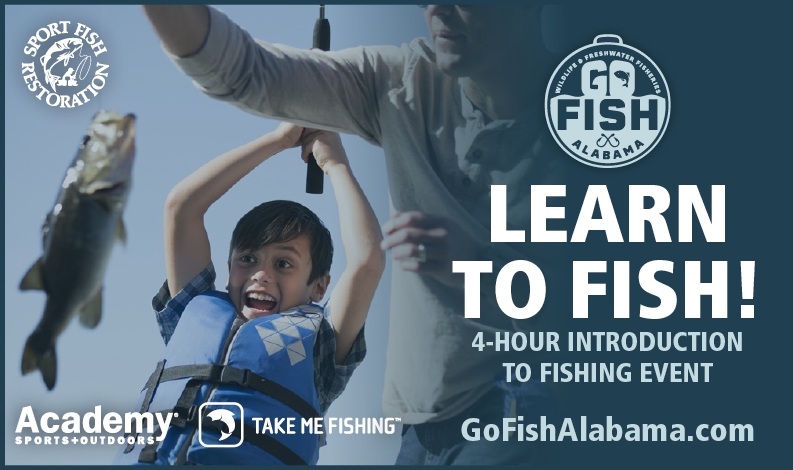
Game Fish
The following shall be named and designated as game fish in Alabama: rainbow trout, all members of the sunfish family to include: largemouth, smallmouth, spotted, shoal, and those species formerly known as “redeye” bass, which are now known separately as Coosa, Warrior, Cahaba, Tallapoosa, and Chattahoochee bass, based on their respective drainages and the Alabama bass which was formerly known as spotted bass in the Mobile drainage; those fish commonly referred to as bream (which include rock bass, flier, shadow bass, warmouth, redbreast, bluegill, longear, and redear (shellcracker); black and white crappie; all members of the temperate bass family to include: saltwater striped, white, and yellow bass and any hybrids thereof; all members of the pike family to include chain, redfin, and grass pickerel; the following members of the perch family: sauger (jack), walleye, and yellow perch.
Sale of Game Fish
It shall be unlawful for any person to sell or offer for sale within this state, or ship or transport for sale within or without this state, or to ship into this state any game fish caught or taken in any of the fresh waters, whether public or private, of this state or any other state. Except (1) game fish raised in hatcheries and sold for stocking ponds and lakes; (2) non-native game fish (trout, salmon, etc.) raised for human consumption or (3) largemouth bass, shellcracker, yellow perch and bluegill (bream) raised in farm ponds, which may be sold under permit from the Wildlife & Freshwater Fisheries Division. For more information, contact your local District Office (see Wildlife & Freshwater Fisheries District Offices).
Means of Catching Game Fish
It is illegal to take, catch or kill, or attempt to take, catch or kill any game fish by any means other than ordinary hook and line, artificial lure, live bait, troll or spinner in any of the public waters of this State. It is unlawful to use electrical devices, explosives, poisons or firearms to take fish of any species from these waters.
Rod Limitations
There is no restriction on the number of rods used by anglers in most Alabama public water bodies with the following exceptions. No more than three rods and reels, or poles, or any combination thereof may be used on Weiss or Neely Henry Reservoir at any time. No more than two rods and reels, or poles, or any combination thereof may be used in the Sipsey Fork River from Lewis Smith Dam to the confluence with the Mulberry Fork at any time.
Use of Bream for Bait
All species of bream may be used as bait as long as a person does not have in his possession total bream numbers in excess of the daily creel limit, regardless of size, and they are harvested legally by hook and line. Other game fish species may not be used for bait.
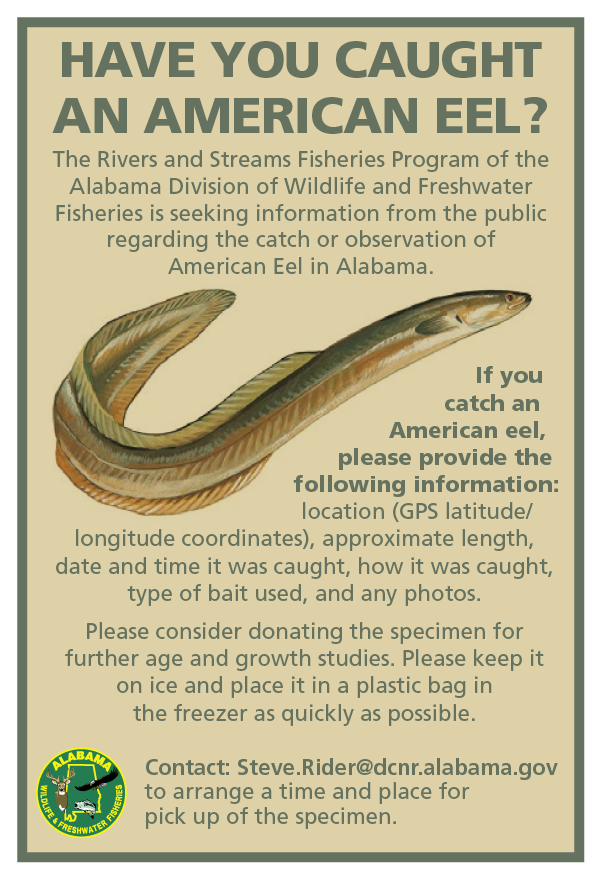
Spearfishing
The spearing of nongame or commercial fish solely for the purpose of sport in all waters of this state, both fresh and salt, is legal provided that the person engaged in the act of spearing is completely submerged and possesses the appropriate sport fishing and spearfishing licenses. This license is issued by the Wildlife & Freshwater Fisheries Division, Marine Resources Division and online. For more information or to request an application packet, call 334-242-3465 or visit the Outdoor Alabama website.
Snagging
It is unlawful to take fish by snagging on the Chattahoochee River or its impoundments, the Tennessee River or its impoundments, and State-owned public fishing lakes. Further, it is unlawful to take or attempt to take fish by snagging within 800 feet of any dam on the Coosa River or its impoundments.
Jug Fishing
Fishing with jugs is permissible in most Alabama public water bodies with a sport fishing license, if required. Jugs are not required to be labeled with angler identification and there is no limitation on the number of jugs used. All jugs must be removed from the water at the end of the fishing trip. Fishing with jugs is illegal in State-owned PFLs (see Public Fishing Lakes).
Limb Lines (Bush Hooks)
Fishing with limb lines is permissible in most Alabama public water bodies with a sport freshwater fishing license. They are not required to be labeled with angler identification and cannot be left unattended for more than 48 hours. Fishing with limb lines is illegal in State-owned PFLs (see Public Fishing Lakes).
Trotlines
It is illegal to fish a trotline or snag line, set line, commercial fishing net, slat boxes or wire baskets within one-half mile below any lock, dam or powerhouse. All recreational licensed fisherman utilizing trotlines are limited to 100 hooks total. All trotlines must have a plastic or metal tag attached containing the owners name and either their address, fishing license number, conservation ID number, or phone number. Trotlines operated under commercial fishing licenses are not limited in number of hooks.
Wire Baskets
Wire baskets may be used only in certain counties to harvest nongame fish for personal consumption only. Persons holding a commercial fishing license may not fish with wire baskets. No fish taken in wire baskets may be sold or offered for sale. All game fish taken in the baskets must be immediately returned to the water. All baskets must be clearly marked with the valid wire basket license number and name of person using and owning the basket. Consult the Alabama Game, Fish, Furbearers, and Other Wildlife Regulation Book or local Conservation Enforcement Officer (see Wildlife & Freshwater Fisheries District Offices) to determine number of baskets and locations where wire baskets are legal.
Gigs or Grabbling/Noodling
Commercial or nongame fish may be legally taken by gigs or hand grabbling by persons possessing a valid sport fishing license. It shall be illegal to use any treble hook or any barbed hook for gigging or grabbling. Only a single barbless hook may be used.
Bowfishing Equipment
Bowfishing with any longbow, recurve bow, compound bow or crossbow using barbed arrows attached by line to the bow, float, vessel or shooter is legal for the taking of commercial or non-game fish. A sport fishing license is required.
Taking Minnows and Shad for Bait
It is legal for licensed anglers to take minnows, shad, and certain suckers from specific public waters by the use of a cast net, minnow jug, minnow basket, not to exceed 24 inches in length, 12 inches in diameter, with funnel entrance not more than one inch in diameter, dip net or minnow seine, the length of which shall not exceed 25 feet and the width or depth of which shall not exceed 4 feet for the purpose of taking the species listed above for the exclusive use as fish bait. No seines may be used in un-impounded tributary streams and creeks. All game fish and all other commercial or nongame fish taken by nets or seines must be immediately returned to the water from whence they came with the least possible harm. Dip nets may be used to land legally caught fish. Live baitfish can not be transported to other bodies of water.
Mussel Harvest for Bait
Licensed anglers may use their hands, a rake or dip net not wider than 24 inches to collect the Asiatic Clam (Corbicula) for fish bait.
Zebra Mussel Alert
The zebra mussel is an exotic species of freshwater mussel that has colonized many southern bodies of water, including the Tennessee and Black Warrior Rivers. These mussels can disrupt freshwater food chains and may cause major changes in some fish populations. Boaters are one of the major contributors to the spread of zebra mussels from infested to uninfested waters. To report zebra mussel sightings or for more information, contact: the Fisheries Section at (334) 242-3471.
Public Water Stocking
It shall be unlawful to intentionally stock or release any fish, mussel, snail, crayfish or their embryos, including baitfish, into the public waters of Alabama under the jurisdiction of the Division of Wildlife and Freshwater Fisheries as provided in Rule 220-2-.42 except those waters from which they came without the written permission of a designated employee of the Department of Conservation and Natural Resources authorized by the Director of the Division of Wildlife and Freshwater Fisheries to issue such permit. The provisions of this rule shall not apply to the incidental release of bait into the water during the normal process of fishing.
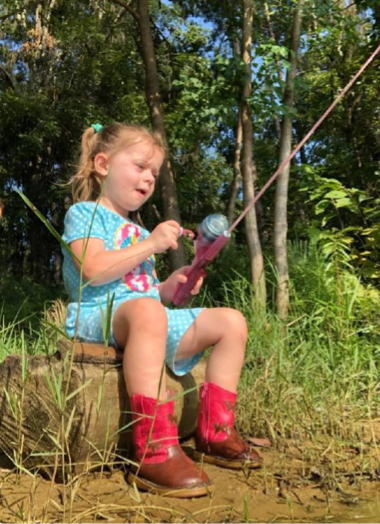
Learn to Fish
The Go Fish, Alabama! Program provides adults and families, with little-to-no fishing experience, an opportunity to fish under the guidance and instruction of a skilled fishing mentor. The program is for individuals interested in learning how to fish, socializing outdoors with friends and family, putting fish on the dinner table, or simply enjoying the thrill and challenge of the catch. Each event is conducted in a safe, welcoming, and constructive environment.
The Go Fish, Alabama! Program provides participants with all the necessary equipment and tackle needed for their learn to fish experience. This program operates state-wide and focuses on providing fishing opportunities within a short driving distance to metropolitan areas. Events are held at State Public Fishing Lakes, city lakes, State Park lakes, and other fishing destinations across Alabama. Each event typically lasts four hours and is offered in the morning or afternoon on weekends and weekdays. For more information about this program, visit the Outdoor Alabama Go Fish program page.
Aquatic Nuisance Species Program
Aquatic nuisance species (ANS) are non-native aquatic organisms that can cause significant ecological and economic harm to Alabama’s waterways. These species, including aquatic plants, fish, mussels, snails and crayfish which outcompete native species, disrupt habitats and interfere with recreational and commercial activities. Examples of common aquatic nuisance species in Alabama include hydrilla, water hyacinth, zebra mussels and silver carp.
Boaters, anglers and other water users play a key role in preventing the spread of ANS. To help protect Alabama’s aquatic resources, it’s important to clean, drain and dry all equipment thoroughly before moving between bodies of water. This includes removing mud, plants and organisms from boats, trailers and other equipment, draining all water from motors, bilges, live wells and bait buckets and allowing equipment to dry completely before launching it in another waterbody. Additionally, individuals should never release aquarium pets, plants or bait into the wild regardless of whether they are exotic or native to Alabama.
Movement of both exotic and native species can have a detrimental affect on resident species in other Alabama watersheds, including direct competition for food and space, and the spread of diseases.
The Alabama Department of Conservation and Natural Resources actively monitors and manages ANS threats through prevention, education, control and coordination efforts. For more information on aquatic nuisance species in Alabama—including identification guides and reporting procedures—visit the Outdoor Alabama aquatic nuisance species page.
Non-native aquatic plants
It is prohibited to introduce, place or cause the introduction or placement of any non-native aquatic plant into any public waters of the State. For further information, contact the local District Fisheries Office (see Wildlife & Freshwater Fisheries District Offices).
Life Jacket Requirements Below Dams
It is unlawful for any person to operate any vessel on the waters of Alabama within 800 feet below a hydroelectric dam and/or navigation lock and dam unless each person aboard, including the operator, is wearing a securely fastened U.S. Coast Guard approved personal flotation device Type I, II, III or V.
Public Boating Access Areas
Public access areas include state-owned and/or operated boat launching ramps, associated parking lots, piers and any real or personal property within the boundaries of such areas. Such public access areas are for the uses of pleasure boating, hunting and fishing. Picnicking is allowed only where tables are provided. The following is a synopsis of regulations for use of such areas, and is intended as a general guide for the boating public. Please refer to the Alabama Game, Fish, Furbearers, and Other Wildlife Regulation Book for specific interpretation.
At Public Boating Access Areas, It Is Illegal To:
- Litter
- Camp or build fires
- Loiter
- Discharge firearms, except as otherwise provided by law
- Consume alcoholic beverages
- Swim, dive, jump or sunbathe within 50 yards of any ramp or pier
- Block ramp, pier or the approach with vehicles or trailers
- Operate any unlicensed vehicle such as ATVs, except those driven by mobility impaired persons in accordance with the Americans with Disabilities Act
- Solicit, sell, advertise or install signs
- Destroy, damage, cut or remove any tree, bush, shrub, plant or flower
- Operate commercial, industrial or construction equipment, such as barges, without written approval from the Fisheries Section, Suite 551, Montgomery, AL 36104
All state laws apply and are enforced on public access areas. For details on boating access sites and regulations, visit the Outdoor Alabama website.
Commercial Fishing
This pamphlet covers only freshwater sport fishing laws and regulations. For information on freshwater commercial fishing or musseling, visit the Outdoor Alabama website, call 334-242-3465, or contact your nearest District Office (see Wildlife & Freshwater Fisheries District Offices).
Boating Operator License Requirements
Alabama residents and nonresidents can find complete boating information by visiting the Alabama Law Enforcement Agency Marine Patrol page or calling 800-272-7930.
Pond Management
Ponds provide excellent fishing opportunities for anglers in Alabama. There are more than 275,000 fish ponds in Alabama. Fish ponds greatly alleviate the fishing pressure on our public streams and lakes. Therefore, the Wildlife & Freshwater Fisheries Division is vitally interested in this popular resource. Proper stocking with appropriate fish species and ongoing fish management will provide years of excellent fishing for bass, bluegill and shellcracker.
Technical assistance is provided to pond owners at no cost regarding proper management practices such as fertilization, liming, weed control and fish harvest. For additional information, contact a District Fisheries Office (see Wildlife & Freshwater Fisheries District Offices).
Alabama & Georgia Reciprocal Agreement
Alabama and Georgia have a reciprocal agreement for fishing from the banks or on the waters of the Chattahoochee River between Alabama and Georgia and all impoundments thereon, South of the Georgia Highway 109 bridge. This agreement does not include any streams or tributaries. Contact a Wildlife & Freshwater Fisheries Division Office for assistance (see Wildlife & Freshwater Fisheries District Offices).
Alabama, Mississippi & Tennessee Reciprocal Agreement
Alabama, Mississippi and Tennessee have a reciprocal agreement for fishing the Tennessee River. See Reciprocal Fishing License Map.

